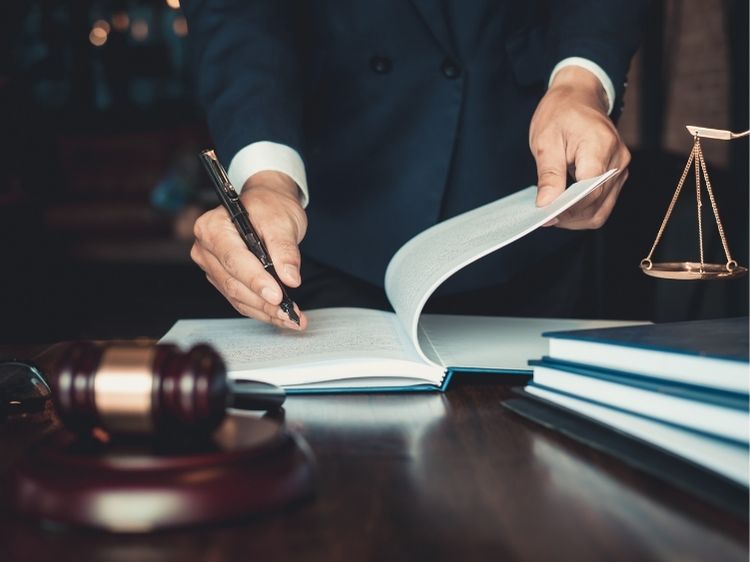Ever wondered why some products get yanked off shelves faster than you can say, “Oops”? That’s often due to a non-compliance recall. When manufacturers or companies fail to meet regulatory standards, products can pose risks to consumers, the environment, or both. Non-compliance recalls ensure safety and accountability, but they can also disrupt industries and consumer trust.
In this article, we’ll break down the essentials of non-compliance recalls, explain their importance, and guide you on handling them. So, let’s dive in, shall we?
What Is a Non-Compliance Recall?
A non-compliance recall happens when a product fails to meet legal or regulatory standards and must be removed from the market. These recalls often stem from:
- Safety hazards: Products that pose risks of injury or harm.
- Environmental violations: Items that do not adhere to eco-regulations.
- Quality failures: Manufacturing defects or labeling inaccuracies.
Non-compliance recalls aren’t limited to one industry. They affect everything from toys to cars and even pharmaceuticals. The common thread? A product doesn’t comply with the rules, and someone has to fix it—fast.
Why Do Non-Compliance Recalls Happen?
No one wakes up thinking, “Let’s make a non-compliant product today!” But mistakes happen. Here are some of the most common causes:
- Manufacturing Errors
Sometimes, production flaws slip through quality control. - Failure to Meet Regulatory Standards
Industries like automotive and pharmaceuticals operate under strict laws. Missing the mark can trigger recalls. - Consumer Complaints
Customer feedback often flags problems that lead to recalls. - Third-Party Testing Failures
Many products undergo independent testing before hitting the market. Failing these tests can spell trouble. - Government Audits
Regulatory agencies like the FDA or CPSC conduct routine checks. If a product flunks, a recall follows.
Key Industries Affected by Non-Compliance Recalls
Non-compliance recalls aren’t confined to a single sector. Let’s explore the industries most commonly impacted:
1. Automotive
Think about airbag malfunctions or faulty brakes. Recalls in the car industry can cost billions and endanger lives.
2. Consumer Goods
From flammable baby clothes to mislabeled cosmetics, consumer goods frequently fall under scrutiny.
3. Pharmaceuticals
Incorrect dosage labels or contamination issues often result in drug recalls.
4. Food and Beverage
Remember the E. coli outbreaks? Improper labeling or contamination often sparks food recalls.
Steps Companies Must Take During a Recall
Recalls aren’t just about pulling products off shelves. They involve a series of critical steps:
- Identify the Problem
Pinpoint the issue through internal audits, consumer reports, or regulatory feedback. - Notify Authorities
Agencies like the FDA or NHTSA must be informed immediately. - Alert the Public
Transparency is key. Companies often use press releases, social media, and their websites to spread the word. - Remove the Product
All affected items must be recalled, whether they’re sitting in a warehouse or a customer’s home. - Implement Corrective Measures
Address the root cause to prevent future recalls. - Compensate Consumers
Refunds, replacements, or repairs are typically offered to affected customers.
Consequences of Non-Compliance Recalls
Recalls aren’t just a hassle—they can have serious repercussions:
1. Financial Losses
Recalls cost companies millions (or billions) in lost revenue and legal fees.
2. Reputation Damage
Nothing erodes consumer trust faster than a recall. Rebuilding that trust? It’s a long road.
3. Legal Penalties
Non-compliance often comes with hefty fines from regulatory bodies.
How Consumers Should Respond to a Recall
Got a product that’s been recalled? Here’s what to do:
- Check the Recall Notice
Find out if your product is affected. Look for batch numbers or purchase dates. - Follow Instructions
Return, replace, or repair the product as directed by the company. - Stay Informed
Keep an eye on regulatory websites or sign up for recall alerts. - Spread the Word
Let family and friends know if a widely used product has been recalled.
Famous Non-Compliance Recalls That Shocked the World
1. Takata Airbags (2013)
One of the largest automotive recalls in history, involving millions of vehicles globally. The faulty airbags were linked to fatalities and injuries.
2. Samsung Galaxy Note 7 (2016)
Exploding batteries led to a massive recall and tarnished Samsung’s reputation temporarily.
3. Tylenol (1982)
A tampering incident caused Johnson & Johnson to recall Tylenol bottles, setting a new standard for crisis management.
FAQs About Non-Compliance Recalls
What should I do if I own a recalled product?
Stop using it immediately and follow the instructions provided in the recall notice.
Are companies legally obligated to issue recalls?
Yes, most regulatory bodies mandate recalls if public safety is at risk.
Can I get a refund for a recalled product?
In most cases, yes. Companies typically offer refunds, replacements, or repairs.
How can I stay informed about recalls?
Check websites like recall.gov or follow regulatory agencies on social media.
Are all recalls related to safety?
Not always. Some recalls address environmental concerns or regulatory compliance issues.
Conclusion
Non-compliance recalls are a necessary part of maintaining safety, quality, and trust. While they can be inconvenient for consumers and costly for companies, they’re vital for protecting public well-being. By staying informed and proactive, you can navigate recalls without breaking a sweat.
Authoritative Links:
- FDA Recalls: www.fda.gov/safety/recalls
- CPSC Recalls: www.cpsc.gov/Recalls
- NHTSA Recalls: www.nhtsa.gov/recalls
- USDA Food Safety Recalls: www.fsis.usda.gov/recalls





